Their fluffy white fur bouncing as they prance, Bichon Frise puppies pitter-patter their way into our hearts. Have you seen these darlings starring in cute videos across the internet? It’s no wonder they rank among the most popular small dog breeds.
But behind their Instagram-worthy looks lies a regal history tracing back 700 years. Originating in the Mediterranean as companions on seafaring ships, the Bichon charmed sailors with their cheerful, plucky personalities. Eventually landing on dry land, these pups became favorites among European nobility.
What makes Bichons so beloved? Their adorable teddy bear appearance catches the eye, but their gentle, playful nature captures hearts. Despite their royal roots, these pups love everyone equally. Whether frolicking at the dog park or prancing around the show ring, their winning disposition shines.
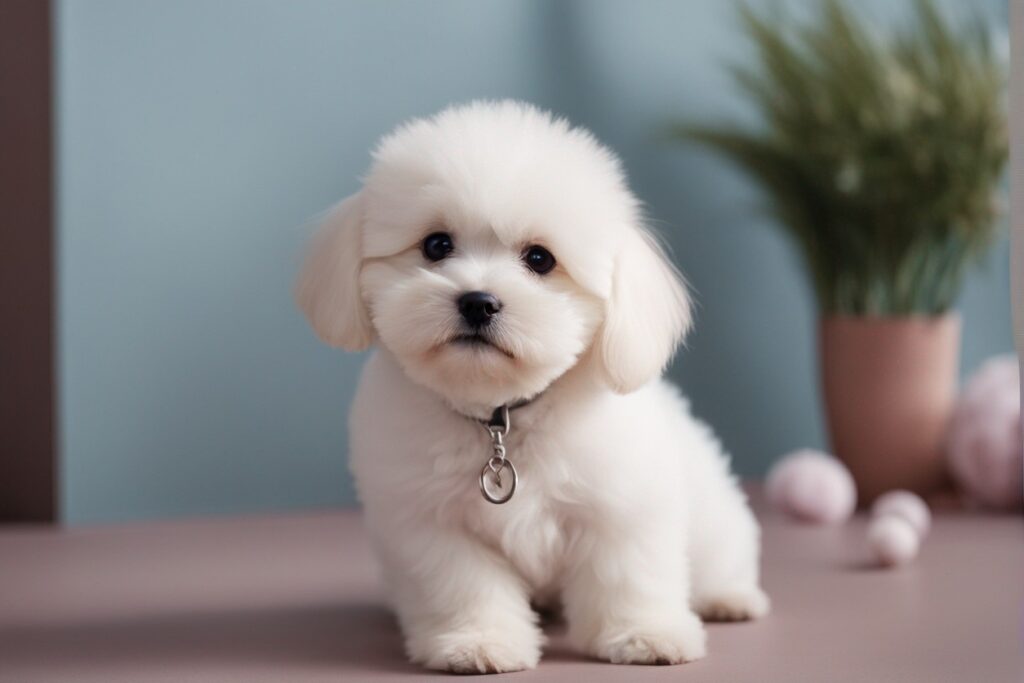
With their distinctive powder puff coats, tiny paws, and permanent puppy-dog eyes, it’s impossible to resist a Bichon’s charm. Take a peek at their past, and you’ll understand why these fluffy darlings have been stars for centuries. Their enduring popularity comes from one irresistible quality – overflowing with love and joy!
Table of Contents
- 1 Bichon Frise Puppies’ Unique Characteristics
- 2 Understanding Bichon Frise Puppies’ Temperament
- 3 Essential Care Needs for Bichon Frise Puppies
- 4 Why Opt for Bichon Frise as First-Time Owners
- 5 Health Concerns in Bichon Frise Puppies
- 6 Buying Guidelines for Bichon Frise Puppies
- 7 Wrapping it Up
- 8 Related posts:
- 9 Bichon Frise Colors: Unveiling the Spectrum
- 10 The Ultimate Guide to Understanding Bichon Frise Hypoallergenic Qualities
- 11 Bichon Frise Rehoming: Find Your Perfect Companion Today!
- 12 Bichon Frisé: All You Need to Know
Bichon Frise Puppies’ Unique Characteristics
Fluffy White Coat
Bichon frise puppies, a small dog breed recognized by the AKC, flaunt a distinctive fluffy white coat. The bichon frisé’s hair is not just for show; it also serves as insulation against cold weather conditions, a characteristic in some dog breeds.
Alert Facial Expression
One look at a bichon frisé, a charming dog breed, and you’ll notice their bright, alert eyes. The bichon frisé’s facial expression is often described as curious and lively, reflecting this dog breed’s energetic personality.
Compact Body Structure
Despite their small size of about 10 to 20 pounds, bichon puppies, a dog breed, have a compact body structure that’s both sturdy and agile. The bichon frisé dog sports a tail curled over the back, adding to their overall charm.
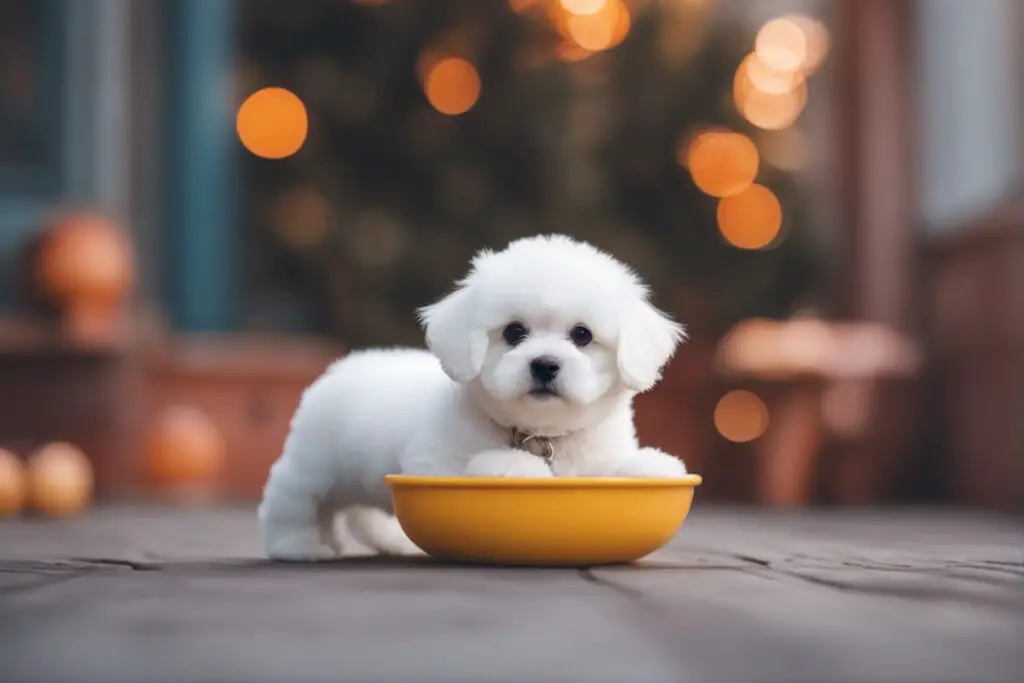
Adaptable Living Conditions
Are you training your bichon puppy for walks? No worries! These dogs are highly adaptable to various living conditions. Whether you live in an apartment or have a backyard, these pups, like a dog or a bichon frisé, can easily adjust.
Just remember, every dog breed, including the Bichon, has its own history and unique characteristics. Enjoy exploring them all!
Understanding Bichon Frise Puppies’ Temperament
Bichon Frise dog puppies are like little rays of sunshine, always ready to brighten your day with their cheerful disposition. Bichon frisés, as a dog breed, are super friendly, too, making them great buddies for kids and adults.
Quick on the Uptake
These Bichon frisé pups are no slouch in the smarts department, just like any other dog. Their high intelligence level makes training a breeze. Remember, your bichon frisé dog is quite the clever clogs – so keep those training sessions interesting!
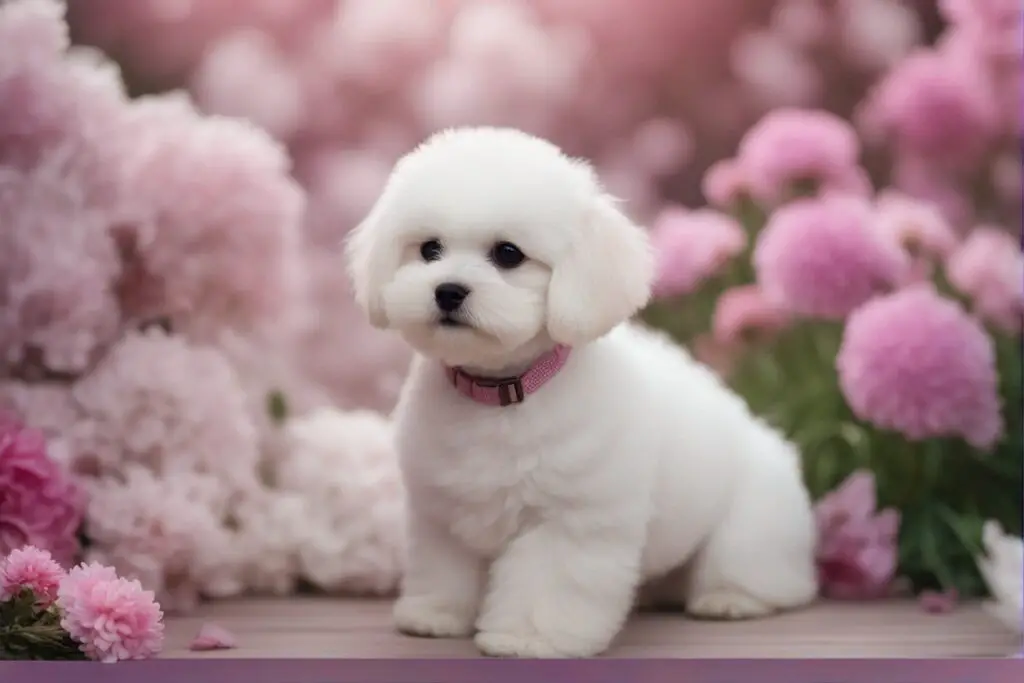
Can’t Stand Being Alone
As much as bichon frisé love learning new tricks, these furballs need companionship seriously. Leave a bichon frisé alone for too long, and you might have to deal with separation anxiety issues. So if you’re a busy bee who’s hardly home, a bichon frisé might not be your breed.
Good with Kids and Other Pets
Have you got kids or other pets at home? No problemo! These fluff balls generally behave well around both. But supervise when your bichon frisé plays with smaller pets – sometimes they get too excited!
To sum it up:
- Cheerful and social butterflies.
- Intelligent cookies that are easy to train.
- Need lots of company or may develop separation anxiety.
- Generally good around kids and other pets.
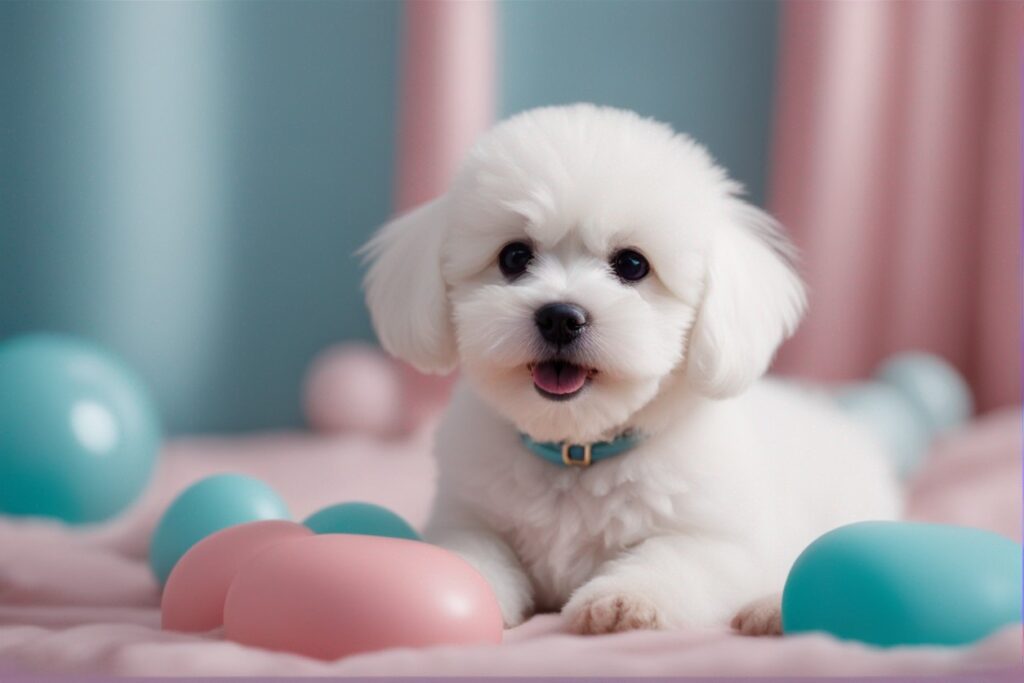
So there you go! A quick lowdown on what makes Bichon Frise puppies tick. Remember, though, every bichon frisé pup is unique, so yours might not fit this mold exactly!
Essential Care Needs for Bichon Frise Puppies
Regular Grooming
Bichon Frise puppies are balls of fluff with curly coats. Their hair grows continuously, just like a human’s! So, bichon frisés need regular grooming to keep their fur from matting and tangling. Brush your bichon frisé daily; it’ll save you both from a hairy situation.
Dietary Requirements
Feed these pups right! They have specific dietary needs. A balanced diet is vital:
- High-quality dry dog food with the right protein, carbs, and fats mix.
- Lots of fresh water. Hydration is important!
- Avoid table scraps. It’s hard to resist those puppy eyes but stay strong!
Remember, every pup is unique. Consult your vet for personalized advice.
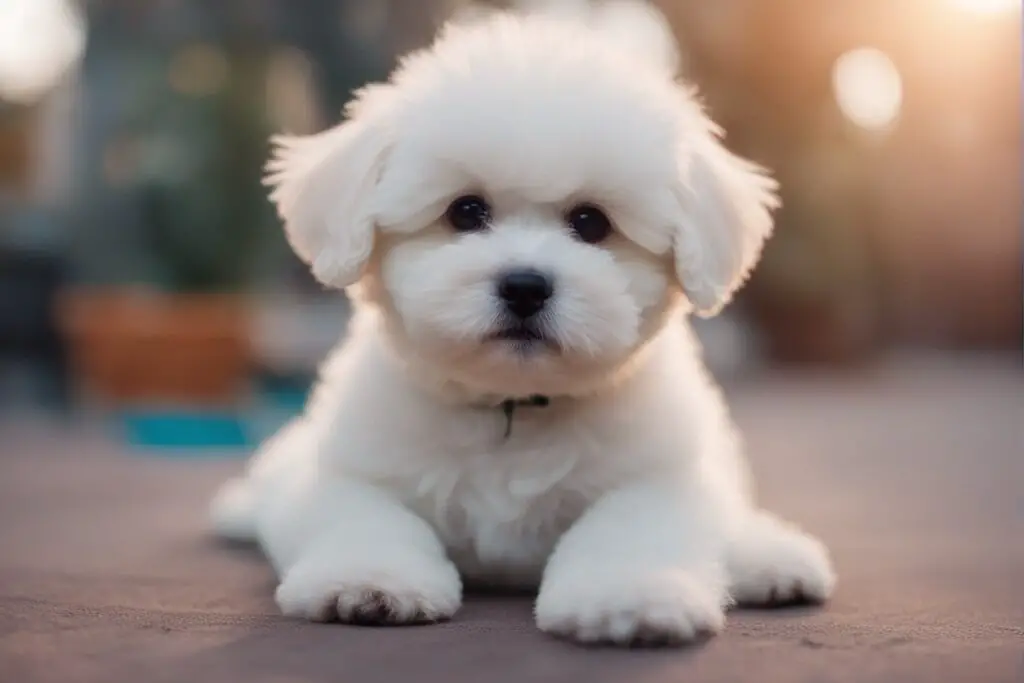
Exercise Needs
These little guys might be small, but they’re full of energy! Daily exercise keeps them healthy and happy:
- Walks around the block or in the park.
- Playtime with toys at home.
- Socializing with other dogs (great for their mental health, too!).
They’re not marathon runners, though, so don’t overdo it.
Training Strategies
Training a Bichon Frise puppy can be tricky—they’re smart but stubborn! Here are some strategies that work:
- Positive reinforcement: Reward good behavior with treats or praise.
- Consistency: Stick to your rules and routines.
- Patience: Don’t rush it; let them learn at their own pace.
Remember, training isn’t just about tricks; it’s about building trust and understanding between you.
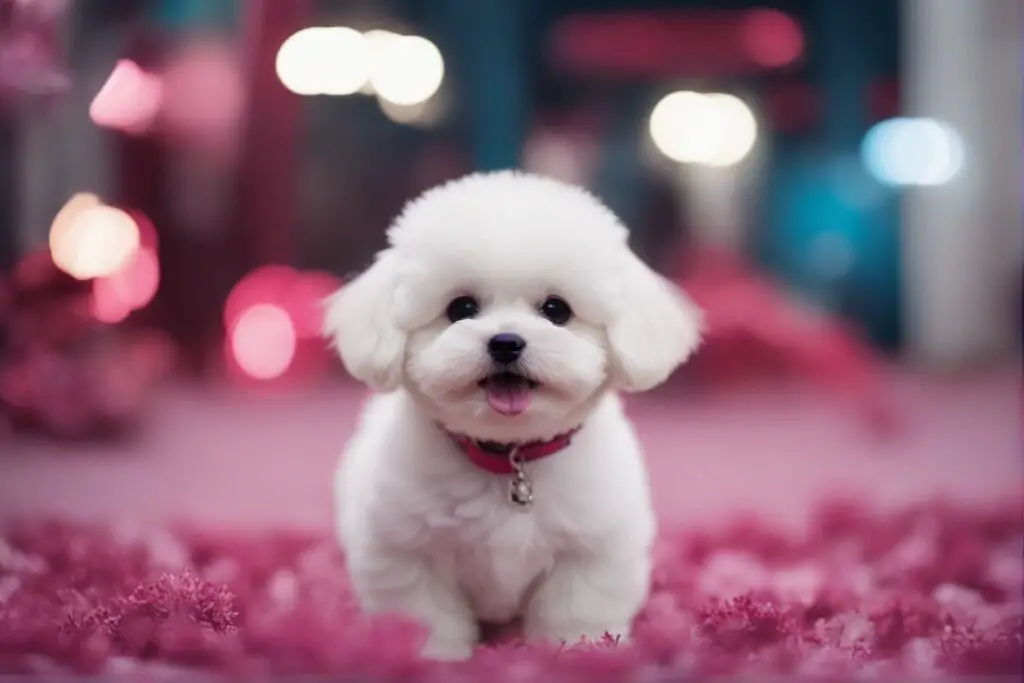
And there you have it—the essential care needs for Bichon Frise puppies!
Why Opt for Bichon Frise as First-Time Owners
A Novice’s Best Friend
Bichon Frise puppies are the perfect pick for first-time dog owners. They’re like sponges, soaking up training with ease. You won’t need a Ph.D. in canine psychology to get them sitting and staying in no time.
Allergies? No Problem!
Have you got allergies? Don’t sweat it! These little bundles of joy come with a low shedding rate. It’s like they have built-in vacuum cleaners, keeping your home (and your sinuses) free from pesky pet hair.
Everyone’s New Bestie
Bichon Frises are the life of the party, always ready to make new friends. They’re friendly butterflies, equally happy schmoozing with humans or other animals. This is it if you want a pup that’ll charm the socks off your neighbors and their pets!
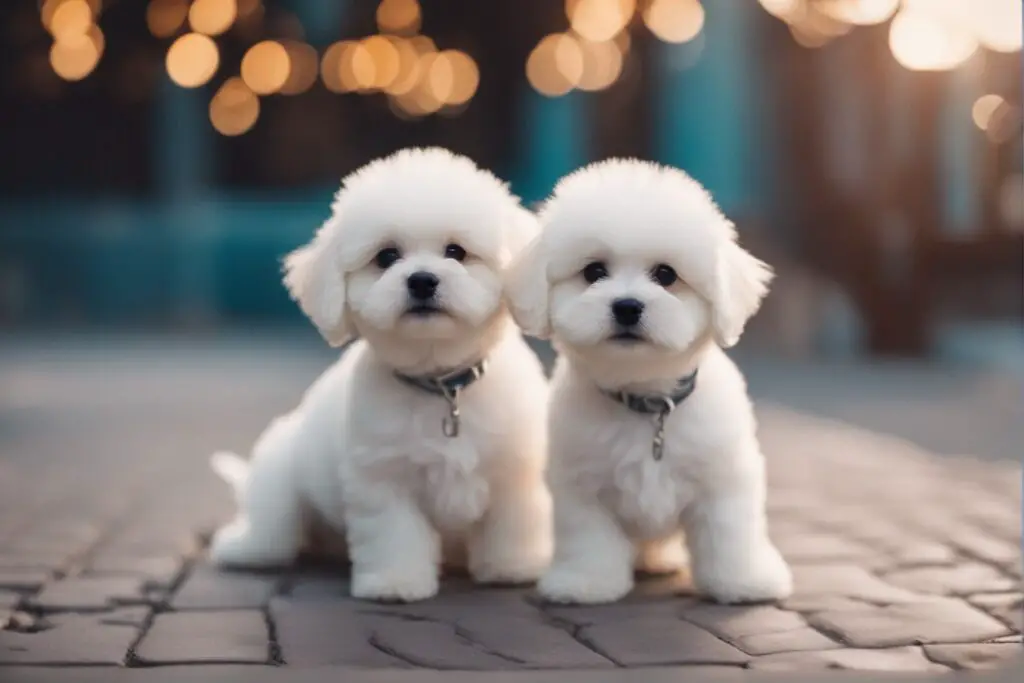
Compact but Full of Life
Don’t have space for a Great Dane? No worries! Bichon Frises don’t need much room to roam around. Despite their small size, these pups pack a lot of personality into a compact package.
To sum it all up:
- Easy-to-train: Perfect for beginners.
- Low shedding: Ideal for allergy sufferers.
- Sociable nature: Makes friends easily with people and other animals.
- Small size: Minimal space requirement.
So why not make your first step into dog ownership a breeze with a Bichon Frise puppy?
Health Concerns in Bichon Frise Puppies
Genetic Disorders
Bichon Frise puppies can be prone to certain genetic disorders. One common issue is hip dysplasia, where the hip joint doesn’t fit together perfectly. This can lead to pain and mobility issues.

Eye Problems
These pups are also known for eye problems. Cataracts are pretty prevalent in the breed. It’s like a cloudy film over their eyes, making it hard to see.
Skin Allergies
Environmental factors often cause skin allergies in these dogs. Think of it as a rash that just won’t quit! It can make them uncomfortable and itchy.
Dental Diseases
Due to their small mouth size, dental diseases are pretty common too. Imagine trying to fit all your teeth into a mouth half the size – not fun, right?
Remember, health is wealth – even for our furry friends! Keep an eye out for these issues and consult with your vet regularly. They’re experts at spotting stuff like hematologic conditions early on, which could save your pup from discomfort.
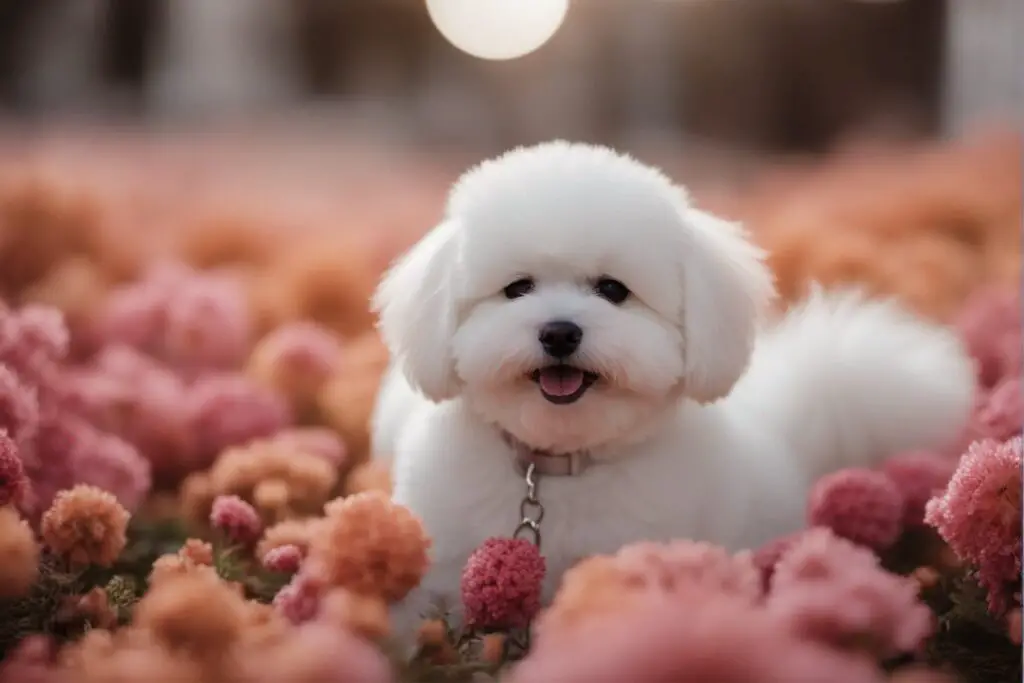
Buying Guidelines for Bichon Frise Puppies
Choose Reputable Breeders
Go for breeders with a good reputation. They’re usually the ones who care about their dogs and not just about making money. Look out for:
- Long-standing experience in breeding Bichon Frise puppies.
- Positive reviews from past customers.
- Transparency about the puppy’s parents and lineage.
Check Health Clearances
Don’t forget to check the health clearances of the puppy’s parents. It’s like taking a peek into your future pup’s health. Make sure:
- Both parents have no history of genetic diseases.
- The breeder can provide proof of health clearances.
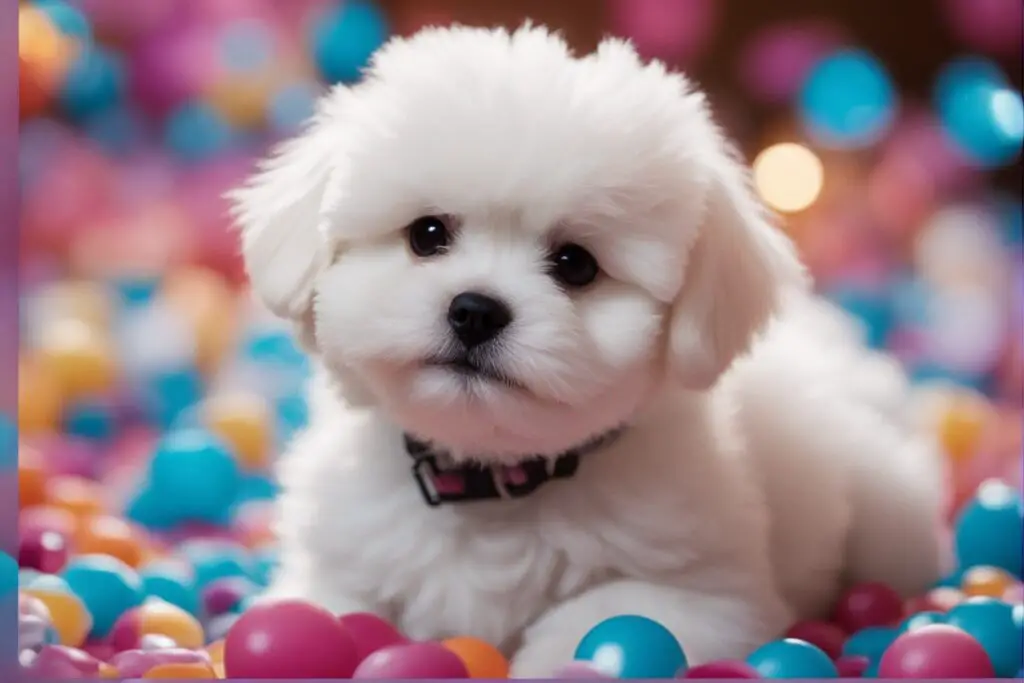
Recognize Healthy Puppy Signs
A healthy pup is an active one with clear eyes. Here are some signs:
- Bright, clear eyes without discharge.
- Dynamic behavior, not lazy or overly sleepy.
- Good appetite and regular bowel movements.
Understand the Fair Pricing Range
Bichon Frise puppies aren’t cheap, but don’t let anyone rip you off, either! Remember:
- Prices can range from $500 to $2000 depending on pedigree and breeder reputation.
- Beware of prices that seem too good to be true.
So there you go! Remember these points when you’re ready to bring home a fluffy bundle of joy!
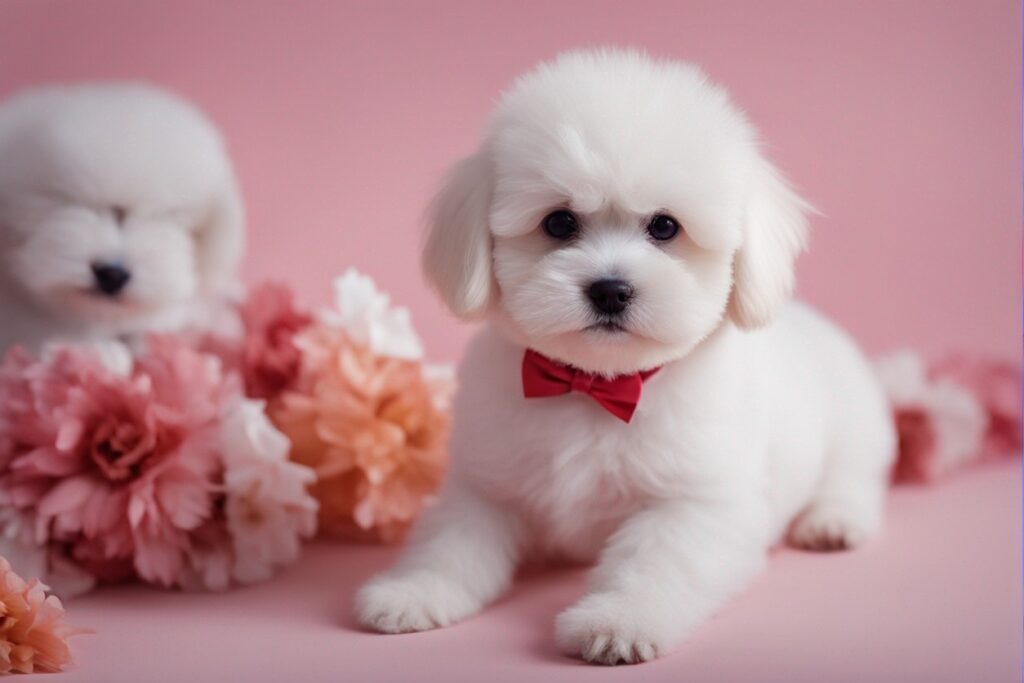
Wrapping it Up
So, you’ve got the lowdown on Bichon Frise pups now. These fluffballs are not just adorable but also have a temperament that’s perfect for first-time owners. Sure, they need a bit of pampering and care, but hey, don’t we all? Remember to keep an eye out for those health concerns we talked about. Now that you’re armed with all this info finding your dream Bichon should be a piece of cake!
But wait! Don’t rush off to buy one just yet. Ensure you’re buying from a reputable breeder who cares as much about these pups as you do. You want your new furry friend to be happy and healthy. So take the plunge, and welcome the joy of owning a Bichon Frise into your life.
FAQs
How long does a Bichon Frise live?
A well-cared-for Bichon Frise can live up to 15 years or even longer.
Are Bichon Frises good with kids?
Yes! Their friendly and gentle nature makes them great companions for children.
Do Bichon Frises shed a lot?
Nope! One of the perks of owning a Bichon is its hypoallergenic coat which sheds very little.
What kind of diet should I feed my Bichon puppy?
A balanced diet rich in protein is essential for your pup’s growth. Always opt for high-quality dog food intended for small breeds.
Is it hard to train a Bichon Frise?
Not at all! They’re intelligent dogs that pick up commands quickly with consistent training.
How often does my Bichon need grooming?
Regular grooming every 4-6 weeks keeps their coat looking its best.